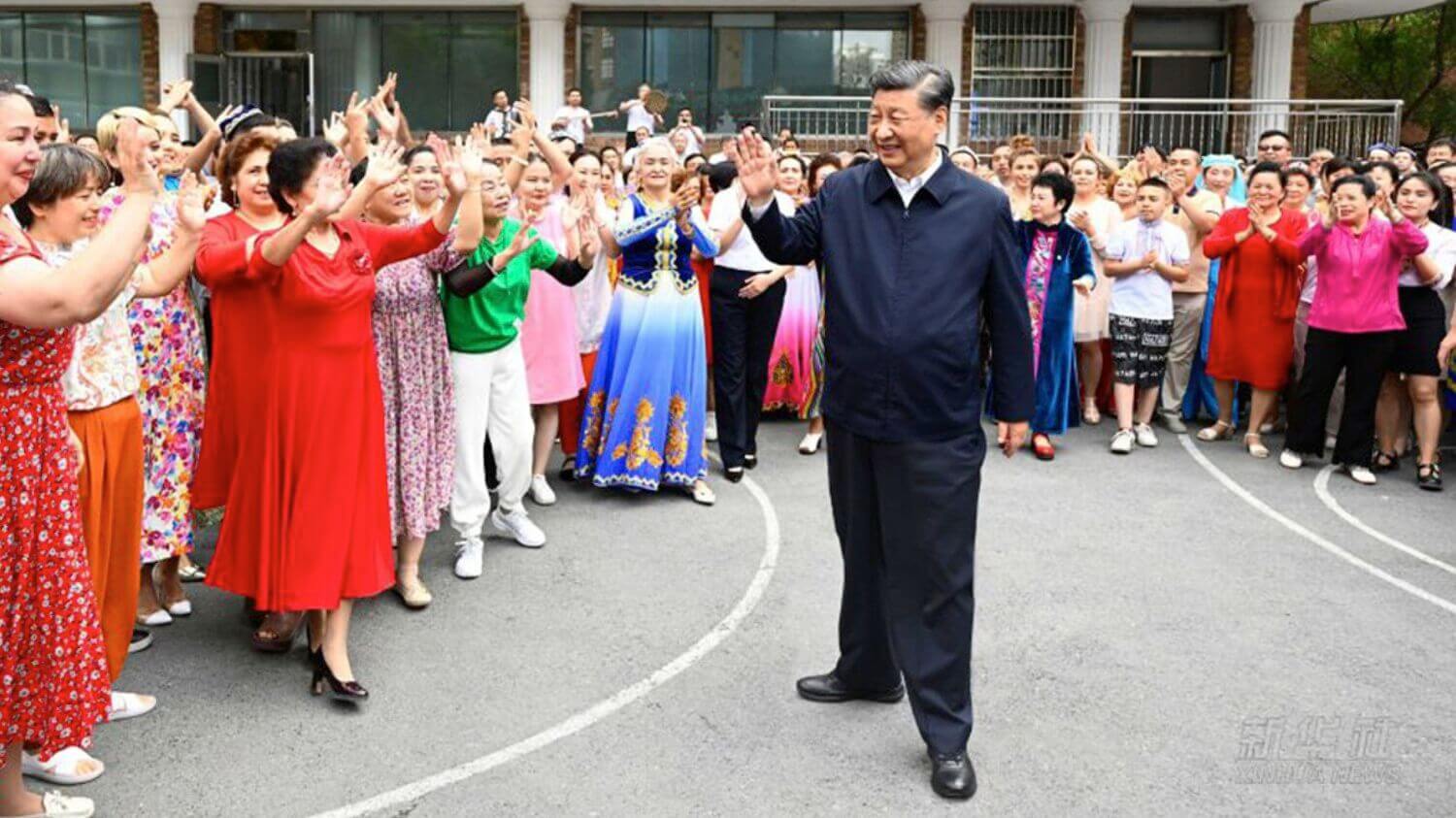During his second visit to the Xinjiang Autonomous Region (XAR) in eight years, Chinese President Xi Jinping hailed the region’s development under the flagship Belt and Road Initiative.
State-owned media house Global Times reported that Xi’s visited the Xinjiang University, the Urumqi International Land Port Area, the community of Guyuanxiang in the Tianshan District, and the Museum of the Xinjiang Uygur Autonomous Region in the city of Urumqi, the capital of the western province.
An official press release said that during the visit, “Xi learned about the work in nurturing talent, coordinating COVID-19 response with economic and social development, promoting ethnic unity and progress and consolidating the sense of community for the Chinese nation, among others.”
#Chinese President #Xijinping recently inspected a university, an international land port area, a residential community &a museum in #Urumqi, the capital city of NW China's #Xinjiang Uyghur Autonomous Region. pic.twitter.com/mWicpfgFCB
— Ambassador Deng Xijun (@China2ASEAN) July 15, 2022
Commenting on the development in the region, Xi said that “the Belt and Road Initiative (BRI) has yielded fruitful results since it was initiated.” “As the joint building of BRI continues to advance, Xinjiang is no longer a remote region but a core area and a hub. What you have done is of historic significance,” he remarked. He also suggested the establishment of “community-level Party organisations” to act as “fortresses” so that “people of all ethnic groups lead happier lives.”
Xi’s visit comes amid repeated accusations that Beijing is committing human rights violations in the region. A BBC report released last February revealed allegations of Uighur women being “systematically raped, sexually abused, and tortured” in the supposed “re-education camps”. Several former detainees and a guard gave the BBC rare first-hand accounts of what goes on inside the internment camps, reporting that “they experienced or saw evidence of an organized system of mass rape, sexual abuse, and torture.”
🇨🇳 President Xi Jinping visited Xinjiang Uyghur Autonomous Region today 😁 pic.twitter.com/AOKohPioqN
— Yin Sura 尹苏拉 (@yin_sura) July 14, 2022
In response to several such allegations, Washington in December signed into law a bill that aims to punish the Chinese government for its treatment of ethnic and religious minorities, particularly the Uyghur Muslims in the Xinjiang region. The Uyghur Forced Labour Prevention Act imposed a blanket ban on imports from China’s Xinjiang region and demands companies provide “clear and convincing evidence” against the use of forced labour in their supply chain.
United Nations (UN) High Commissioner for Human Rights Michelle Bachelet visited the region in May to verify reports of mass human rights violations. However, her trip was conducted in a “closed-loop,” wherein both sides agreed that no journalists would be allowed to travel with her. “Closed-loop” meetings refer to a way of isolating people within a bubble to prevent the spread of COVID-19. By employing this tactic, Bachelet was prevented from holding spontaneous in-person meetings with anyone who was not pre-verified by the Chinese government.
Xi Jinping, general secretary of the #CPC Central Committee, inspected a university, an international land port area, a residential community & a museum in Urumqi, capital of northwest China's Xinjiang Uygur Autonomous Region, from Tuesday afternoon to Wednesday morning. pic.twitter.com/k1jemY9K2A
— Zhang Heqing张和清 (@zhang_heqing) July 14, 2022
Through various intelligence reports, it is widely believed that over one million Uighur Muslims and other Muslim minorities are detained in over 85 camps across the region. Beijing has been accused of numerous crimes against ethnic and religious minorities in the northwestern region of Xinjiang, including setting up a mass detention and surveillance system and subjecting Muslims to forced labour, birth control, sterilisation, and marriages, as well as torture. The international community has decried China’s actions in Xinjiang as genocide, with the US and the European Union even imposing sanctions against senior Chinese officials over their involvement in human rights abuses.
However, the government has consistently dismissed such criticism, maintaining that the facilities in Xinjiang are job training centres, aimed at countering religious extremism and terrorism. It has further justified their need as a necessary measure against separatist violence in Xinjiang. In a setback to the cause of the Muslim minorities in China, the International Criminal Court (ICC) in December declined to open an investigation into China’s forced detention, stating that prosecution was not possible for the time being since China is not a signatory to the Rome Statute.

